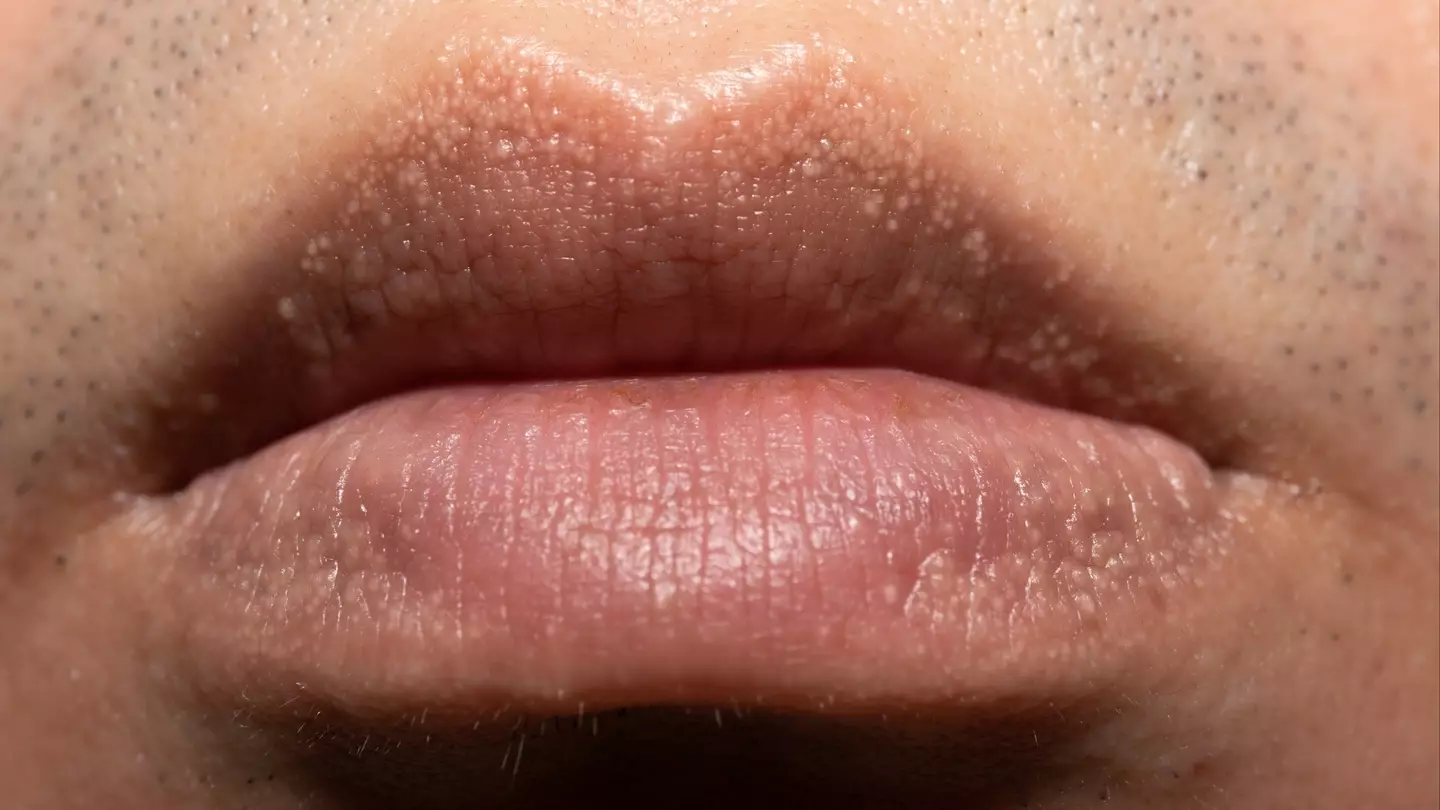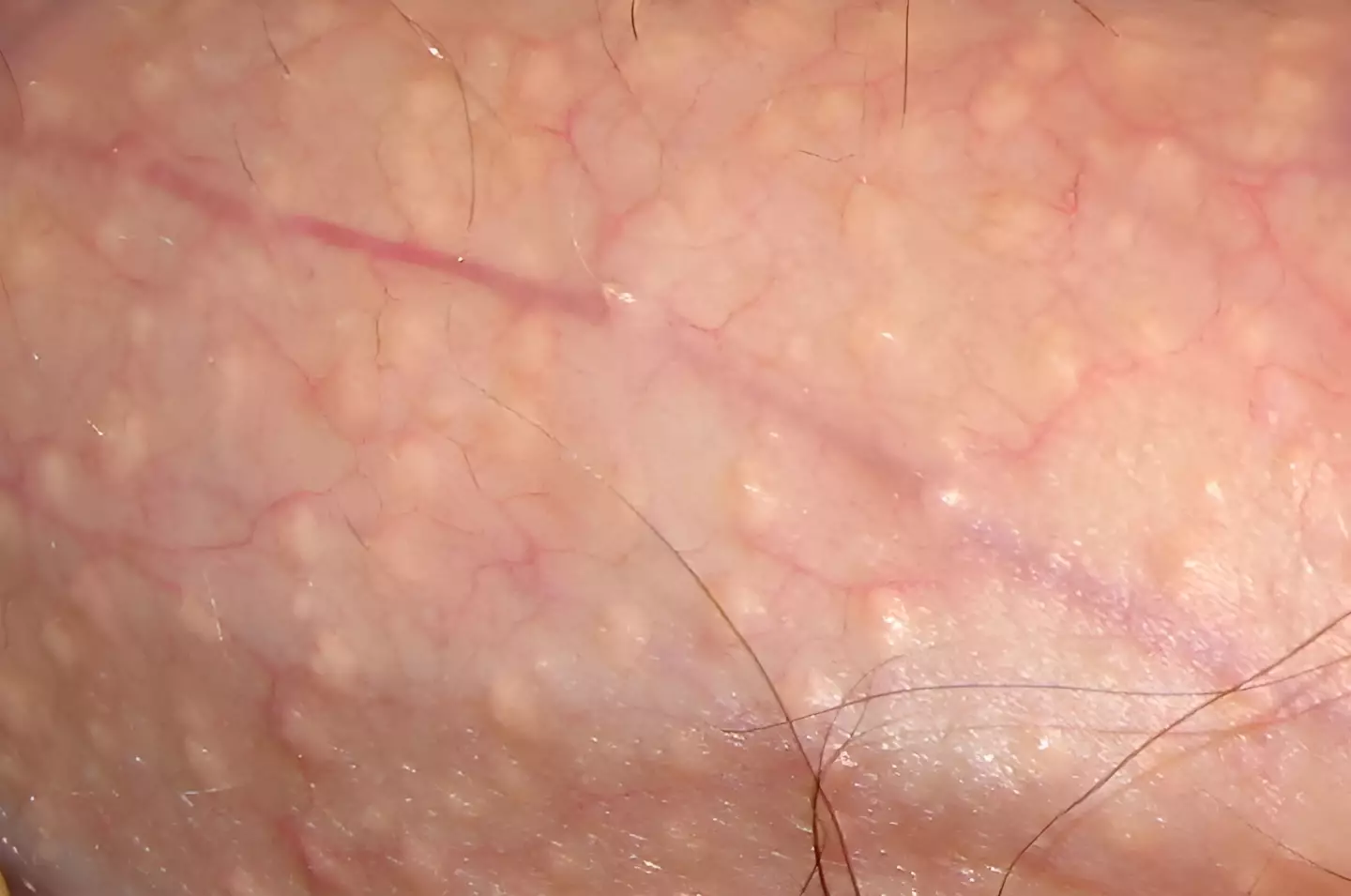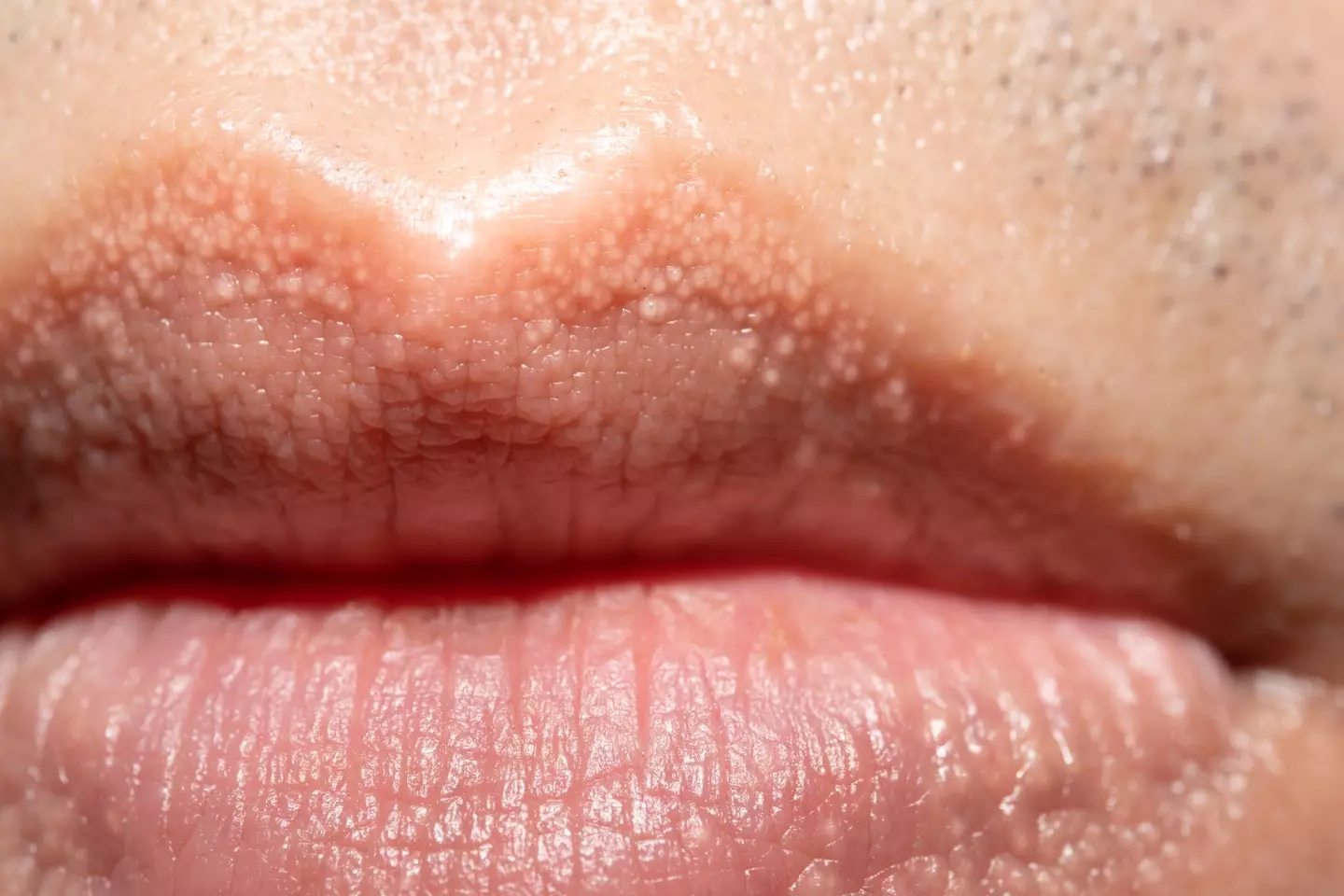
If you see a collection of white spots on your private parts, then you might be alarmed at their appearance and worried it's a sign of something that needs medical attention.
However, most of the time they're something entirely benign which comes with their own special name, Fordyce spots, named after American dermatologist Dr John Addison Fordyce who first documented them in 1896.
What a thing for your name to be attached to forever.
Anyhow, these things typically show up on your genitals or your lips. They affect as much as 80 percent of people, and they are essentially the visible symptom of a very common skin condition where your oil glands appear larger.
Advert
As for what you can do when you spot them, do remember that they are harmless and cannot be transferred to another person so they're not infectious.

Still, a doctor has explained that there is a point where you might want to seek medical help should something that looks like Fordyce spots appear on your body.
Doctor Andrew Hart-Pinto of JHP Medical UK explained that these spots are 'present at birth' but don't tend to show themselves until puberty when hormonal changes make them larger and they show themselves at last.
The doctor said: "It's important to note that Fordyce spots are not a sexually transmitted disease and are not transmittable.
"However, if you see new spots appearing on your genitals, it's best to see a doctor.
"This is because they can look similar to the early stages of some sexually transmitted infections, and it's better to have them checked by a medical professional if you have any concerns."

So while Fordyce spots are harmless, there are some STIs which can begin with the sudden appearance of white spots and any worries you have would best be attended to by a doctor.
It's a good rule of thumb that if you get a new development about your body which worries you then it's better to be safe than sorry.
At the very least you can be told there's nothing to worry about which ought to set your mind at ease, and in a worse scenario you'll get diagnosed with whatever it is you have and can start receiving treatment for it.
Dr Hart-Pinto warned people not to try and pick or squeeze these spots themselves since 'you are potentially going to cause an infection or scarring', and if you're worried about them looking bad, then the scars will be even worse.
If you really want to get rid of Fordyce spots, there are treatments available including micro-punch surgery, laser treatments to burn the spots away, or electrosurgery to get rid of them.
Topics: Health